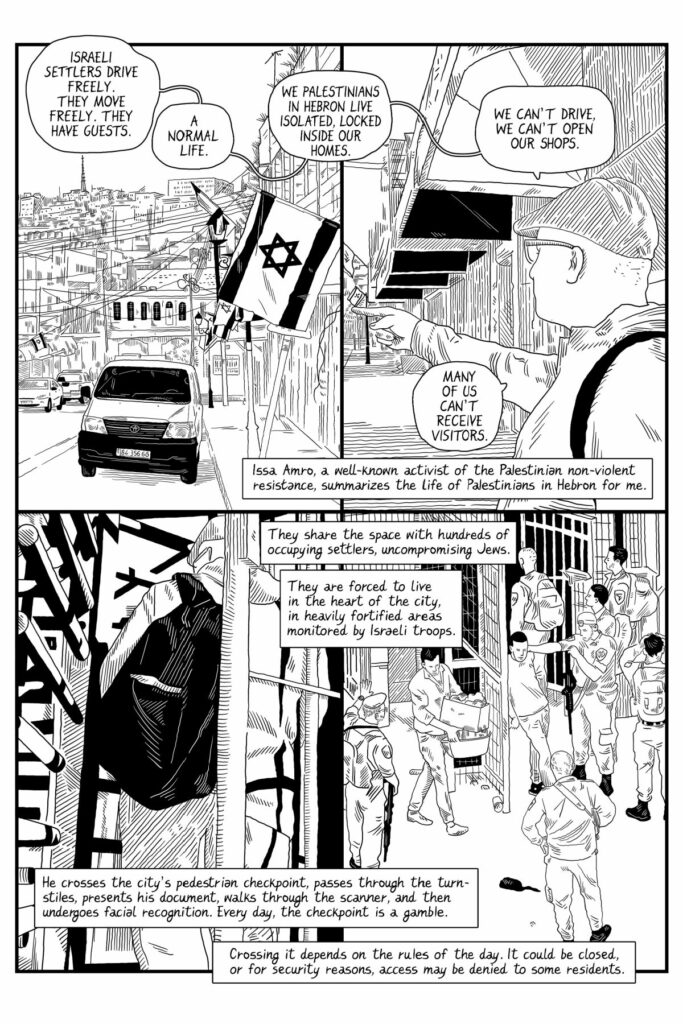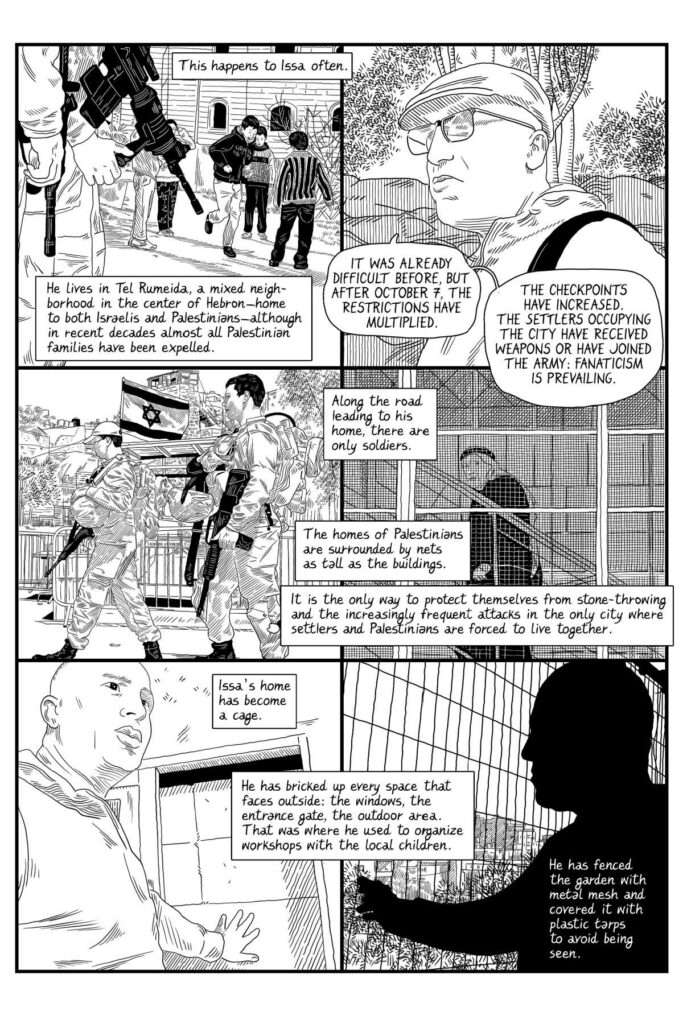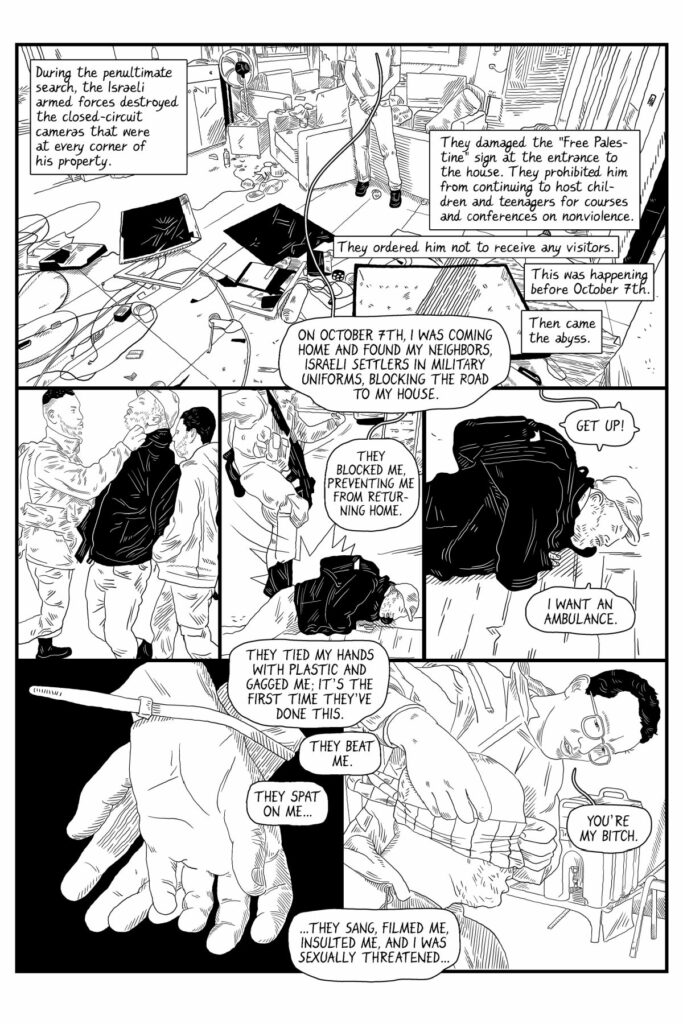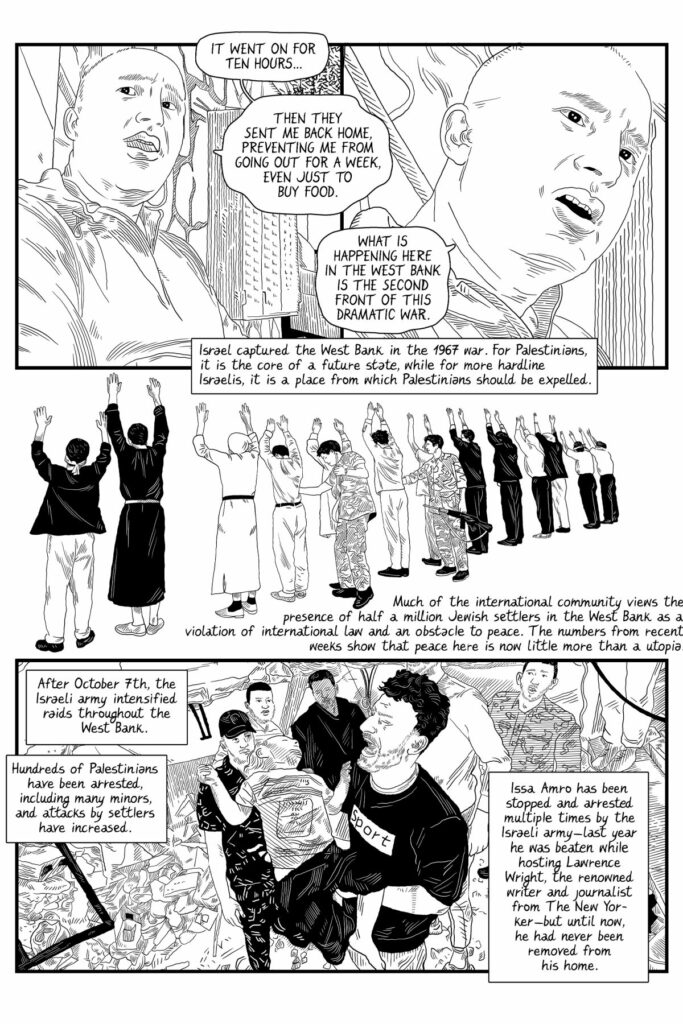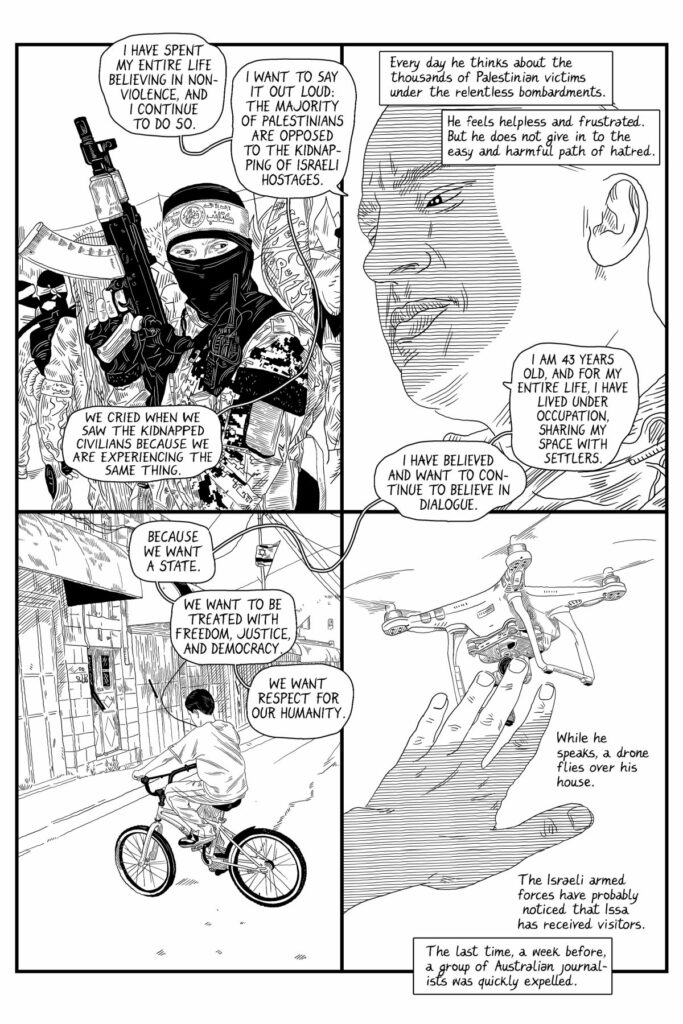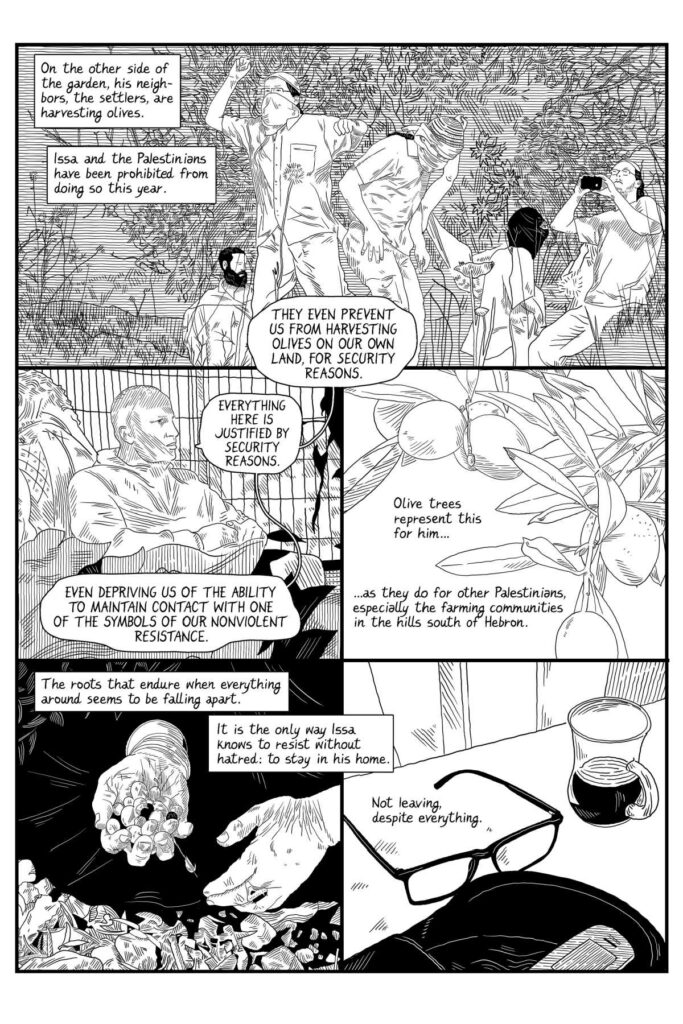Francesca Mannocchi is an Italian journalist and filmmaker who has worked for Italian television for many years and has written for a range of international and Italian magazines.
Gianluca Costantini is an Italian artist, cartoonist, illustrator and activist. He has contributed to numerous publications and is the author of several graphic novels. He collaborates with organizations such as the Committee to Protect Journalists, ActionAid, and SOS Méditerranée. In 2019, he received the Art and Human Rights Award from Amnesty International.
There is no one along the road that leads to Issa Amro's house, just Israeli soldiers. Palestinian homes in Hebron are surrounded by fences as high as the buildings. For Palestinians here, they are the only way to protect themselves from stone-throwing Israeli settlers and other increasingly frequent attacks in the only city where the settlers and Palestinians live together.
Issa's house has become a cage. He has walled up every space that opens onto the outside: the windows, the entrance gate, the outdoor space where he used to organize workshops with the children of the neighborhood. He has surrounded his garden with wire mesh and covered the wire mesh with plastic sheets, so as not to be seen. During the a recent raid, Israeli soldiers destroyed the security cameras he had placed at every corner of his property. They damaged the "Free Palestine" sign at the entrance to his house. They forbade him from continuing to host Palestinian children and teenagers for courses and conferences on nonviolence. They even ordered him not to receive any visitors to his own home.
This all happened before October 7. Then, the abyss.
The day after the Hamas-led attacks into southern Israel, Issa was returning to his house and found his neighbors—all settlers—wearing military uniforms and blocking his way home. They surrounded him. They tied his hands, then blindfolded and gagged him, before handing him over to a group of soldiers who transferred him to a container at the nearest Israeli military base. There began ten hours of horror that Issa will never forget.
"They beat me, pointed guns at me, sang and filmed me with their cell phones while they threatened me," he told me. "They showed no mercy. Then they sent me home, preventing me from leaving for a week, even to go and buy food. What is happening here in the West Bank is the second front of this dramatic war."
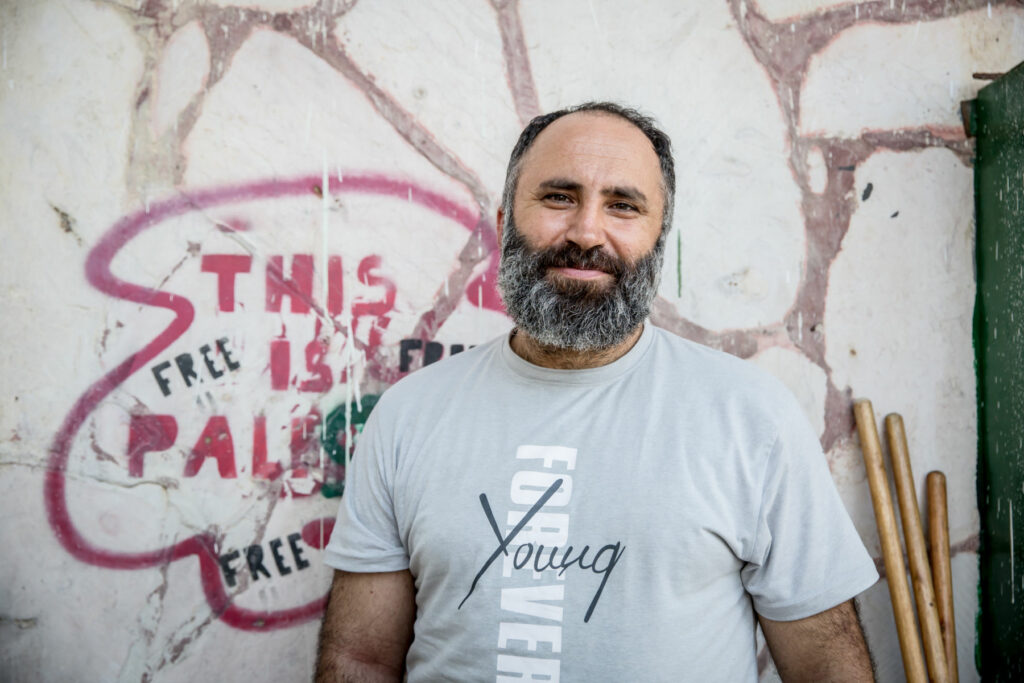
Israel conquered the West Bank in the 1967 war. For Palestinians, it is the nucleus of a future state. For the most intransigent Israelis, it is a place from which the Palestinians must be expelled.
A large part of the international community considers the presence of half a million Jewish settlers in the West Bank a violation of international law and an obstacle to peace. What has transpired in the West Bank since October 7 suggests that peace here is now little more than a utopia. After October 7, the Israeli army intensified its raids throughout the West Bank and hundreds of Palestinians were arrested, including many minors, all while violent settler attacks multiplied.
Amro has been stopped and arrested several times by the Israeli army; last year, he was beaten while hosting Lawrence Wright, the well-known writer and journalist for The New Yorker. But until the aftermath of October 7, he had never been removed from his own home.
Despite the escalating attacks from settlers and soldiers and despite his detention, Issa has no doubts: "I have spent my entire life believing in nonviolence, and I continue to do so."
He does not justify any form of violence. He cried in the face of the Hamas's attack. "I want to say it out loud: the majority of Palestinians are against the kidnapping of Israeli hostages," he said. "We cried when we saw the kidnapped civilians because we are going through the same thing."
Every day, Issa thinks of the thousands of Palestinian victims in Gaza under incessant Israeli bombing. He feels helpless, frustrated. But he does not give in to the easy and harmful path of hatred.
As he spoke during our interview in Hebron, a drone flew over his house. The Israeli military must have noticed that Issa has had visitors. The last time, a week earlier, a group of Australian journalists were quickly chased away. Issa raised his hand, greeting the drone overhead.
Outside Issa's garden, his neighbors, the settlers, are picking olives. But the Israelis have banned Palestinians in Hebron from picking olives this year.
"They even prevent us from picking olives on our land, for 'security reasons,'" Issa told me. "Everything here is decided for security reasons. Even depriving us of the possibility of maintaining contact with one of the symbols of our nonviolent resistance."
The olive trees represent this for him, as for other Palestinians, especially the farming communities in the hills south of Hebron—the roots that resist, when everything around them seems to be falling apart. The only way Issa knows to resist without hatred is to stay in his home. To not leave, despite everything.
—Francesca Mannocchi





























